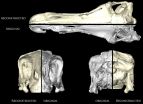(Press-News.org) MANY patients whose lung cancer is diagnosed as an emergency in hospital reported difficulties in previously seeing their GP, according to research presented at the National Cancer Research Institute (NCRI) Cancer Conference in Liverpool today (Tuesday).
The study, carried out by researchers from the London Cancer Alliance (LCA) and King's College London, investigated around 130 patients who were diagnosed with lung cancer after attending as an emergency at one of seven hospitals in south and west London.
Overall, nearly half of the patients reported that something had put them off going to the doctor, including difficulty making an appointment, not being able to see their usual doctor, not having confidence in the GP, and fear of what the doctor might find. About a fifth of all patients (18 per cent) said they had not realised that their symptoms were serious.
A fifth of all patients – who tended to be older, poorer and more fearful of what the doctor might find – delayed going to their doctor with their symptoms for more than 12 weeks.
Three-quarters of the patients had consulted their GP about their symptoms, and one fifth had seen a GP at least three times. Almost a quarter (23 per cent) of the patients had already been referred for hospital visits by a GP but many were admitted to hospital before the appointment because they were so unwell.
Lead study author Dr Thomas Newsom-Davis, LCA Acute Oncology Services pathway chair and consultant medical oncologist at Chelsea and Westminster Hospital, said: "These findings show that we need to work together to improve patient education, ensure that those with possible lung cancer can easily make an appointment to see their GP, and that patients are quickly seen in specialist lung cancer clinics.
"It's important to pilot ways of ensuring that patients with possible symptoms of cancer can be seen in hospital before they get so ill that they are admitted as an emergency, for example, rapid-access diagnostic clinics."
Lung cancer is the second most commonly diagnosed cancer in the UK. Around 43,500 people are diagnosed each year in the UK with around 35,400 UK deaths from lung cancer annually. Symptoms include a persistent cough, shortness of breath, chest pain and coughing up blood. Almost 40 per cent of patients with lung cancer in England are diagnosed as an emergency in hospital, and have poorer chances of survival.
Dr Robert Rintoul, Chair of NCRI's Lung (Screening and Early Diagnosis) Clinical Studies Subgroup, said: "If lung cancer is diagnosed at an early stage, patients have a much higher chance of surviving the disease. Therefore it's vital that patients recognise possible symptoms early on and are able to get them checked out quickly.
"This study provides valuable information to suggest ways to help ensure that far fewer patients have an emergency diagnosis of lung cancer, when their disease is likely to be more advanced and treatment is less likely to be successful."
INFORMATION:
For media enquiries contact the NCRI press office on 0151 707 4642/3/4/5 or, out of hours, on 07050 264 059.
'What explains diagnosis of lung cancer as an emergency?' Abstract: http://conference.ncri.org.uk/abstracts/2014/abstracts/B123.html
The London Cancer Alliance was established in 2011 as the integrated cancer system across west and south London. The LCA works collaboratively with 15 NHS member organisations, as well as two academic health science centres and the voluntary sector. It provides comprehensive, integrated cancer patient pathways and services to drive improvements in patient outcomes and experience.
The study was part-funded by the London Cancer Alliance, the Department of Health, NHS England, and the Policy Research Unit in Cancer Awareness, Screening, and Early Diagnosis which receives funding from the Department of Health Policy Research Programme. It is a collaboration between researchers from seven institutions (Queen Mary University of London, UCL, King's College London, London School of Hygiene and Tropical Medicine, Hull York Medical School, Durham University and Peninsula Medical School).
The study looked at 133 patients whose lung cancer was diagnosed as part of an acute (unplanned) hospital attendance.
SCIENTISTS have found a possible way to halt one of the most common faults in many types of cancer, according to research presented at the National Cancer Research Institute (NCRI) Cancer Conference in Liverpool today (Wednesday).
A team of scientists at the Max Planck Institute of Molecular Physiology in Germany has
uncovered a new strategy and new potential drug to target an important signalling protein in cells called Ras, which is faulty in a third of cancers.
When the Ras protein travels from the centre of a cell to the cell membrane, it becomes 'switched on' ...
PATIENTS with a specific type of oesophageal cancer survived longer when they were given the latest lung cancer drug, according to trial results being presented at the National Cancer Research Institute (NCRI) Cancer Conference today (Wednesday).
Up to one in six patients with oesophageal cancer were found to have EGFR duplication in their tumour cells and taking the drug gefitinib, which targets this fault, boosted their survival by up to six months, and sometimes beyond.
This is the first treatment for advanced oesophageal cancer shown to improve survival in patients ...
SCIENTISTS have found a pattern of genetic 'switches' – chemical marks that turn genes on or off - that are linked to breast cancer's spread to the brain, according to research* presented at the National Cancer Research Institute Cancer Conference in Liverpool today (Wednesday).
The researchers, based at the University of Wolverhampton, studied 24 breast cancers that had spread to the brain, along with samples from the original breast tumour, and found a handful of genes with faulty switches.
Crucially, two of the genetic switches became faulty early on in the ...
Everyone knows the scene: a basketball player at the free throw line, bouncing the ball as he concentrates on the basket. It's a tight game, and his team needs this point. He regularly makes baskets from much farther away while avoiding defenders, but now, when all is calm, he chokes and misses the basket, and his team loses. Recent research from The Johns Hopkins University suggests that in situations like this, performance depends on two factors: the framing of the incentive in terms of a loss or a gain, and a person's aversion to loss.
"We can measure someone's loss ...
For years, scientists have debated how best to assess brain levels of oxytocin, a hormone implicated in social behaviors. Now, researchers at the Stanford University School of Medicine have found the first direct evidence in children that blood oxytocin measurements are tightly linked to levels of oxytocin in cerebrospinal fluid, which bathes the brain.
Low oxytocin levels in blood and CSF are both correlated to high anxiety levels, the research also showed. The findings will be published online Nov. 4 in Molecular Psychiatry.
"So many psychiatric disorders involve ...
Fossils are usually deformed or incompletely preserved when they are found, after sometimes millions of years of fossilization processes. Consequently, fossils have to be studied very carefully to avoid damage, and are sometimes they are difficult to access, as they might be located in remote museum collections. An international team of scientists, led by Dr. Stephan Lautenschlager from the University of Bristol now solved some of these problems by using modern computer technology, as described in a recent issue of the Journal of Vertebrate Paleontology.
The team consisting ...
In a study that included nearly 38,000 patients, those diagnosed with nonobstructive coronary artery disease (CAD) had a significantly increased risk of heart attack or death one year after diagnosis, according to a study in the November 5 issue of JAMA.
Nonobstructive coronary artery disease (CAD) is atherosclerotic plaque that would not be expected to obstruct blood flow or result in anginal symptoms (such as chest pain). Although such lesions are relatively common, occurring in 10 percent to 25 percent of patients undergoing coronary angiography, their presence has ...
Among patients with metastatic melanoma, treatment with a combination of the drugs sargramostim plus ipilimumab, compared with ipilimumab alone, resulted in longer overall survival and lower toxicity, but no difference in progression-free survival, according to a study in the November 5 issue of JAMA.
F. Stephen Hodi, M.D., of the Dana-Farber Cancer Institute, Boston, and colleagues conducted a phase 2 clinical trial in which 245 patients with unresectable (unable to be removed by surgery) stage Ill or IV melanoma were randomly assigned to receive ipilimumab (intravenously) ...
Testing of study participants who wore head-mounted display systems (Google glasses) found that the glasses created a partial peripheral vision obstruction, according to a study in the November 5 issue of JAMA.
Interest in wearable head-mounted display systems for general consumers is increasing, with multiple models in production. However, their effect on vision is largely unknown. Peripheral visual field is a main component of vision and essential for daily activities such as driving, pedestrian safety, and sports. Conventional spectacle frames can reduce visual field, ...
BOSTON – Patients with metastatic melanoma who were treated with ipilimumab, an immune checkpoint blocker, survived 50 percent longer – a median 17.5 months vs. 12.7 months – if they simultaneously received an immune stimulant, according to a study led by Dana-Farber Cancer Institute scientists.
Patients in the clinical trial who got the combined therapies also had fewer serious adverse side effects than those who received only ipilimumab, the researchers report in the Journal of the American Medical Association.
The group treated with both ipilimumab ...


